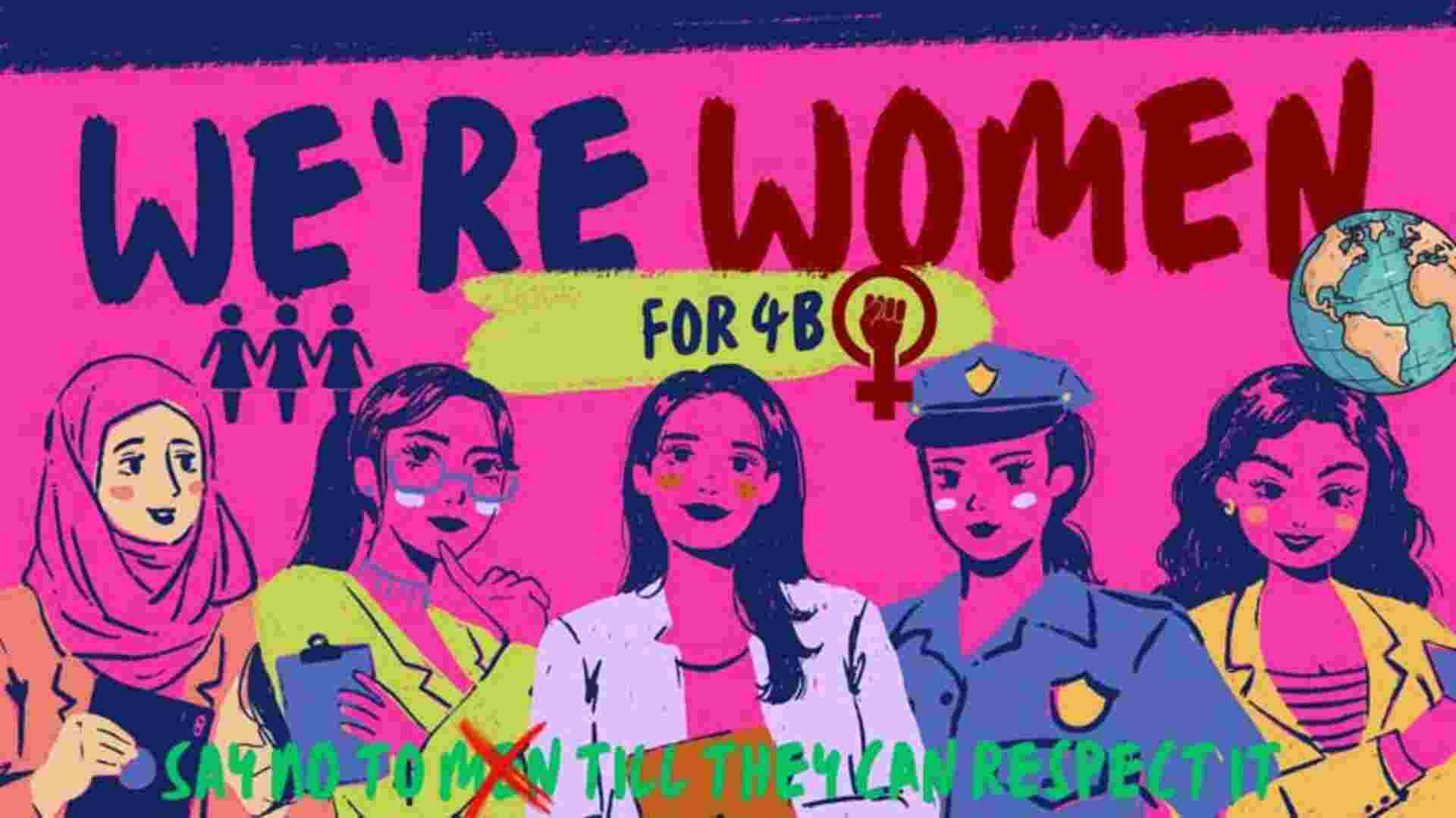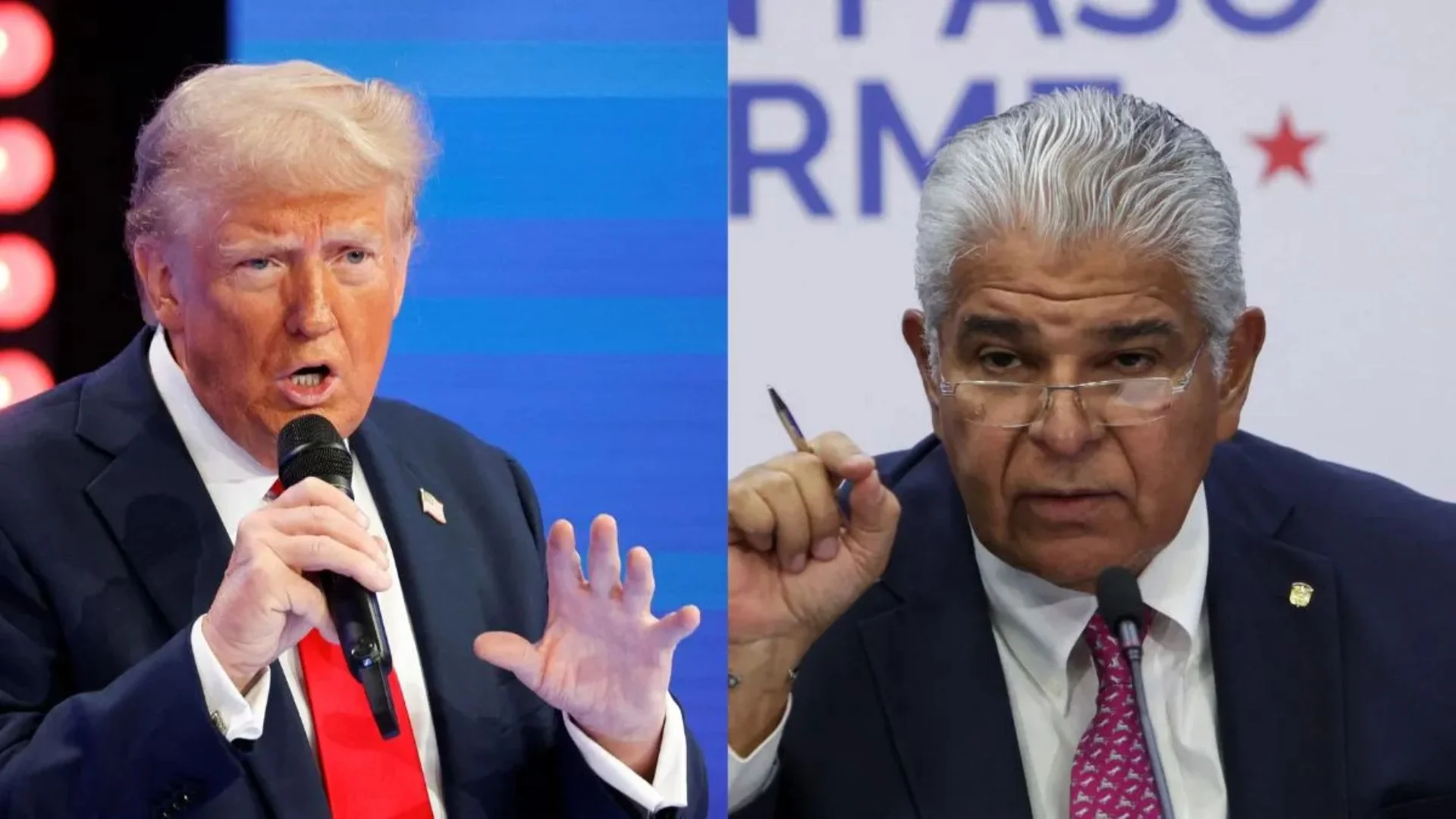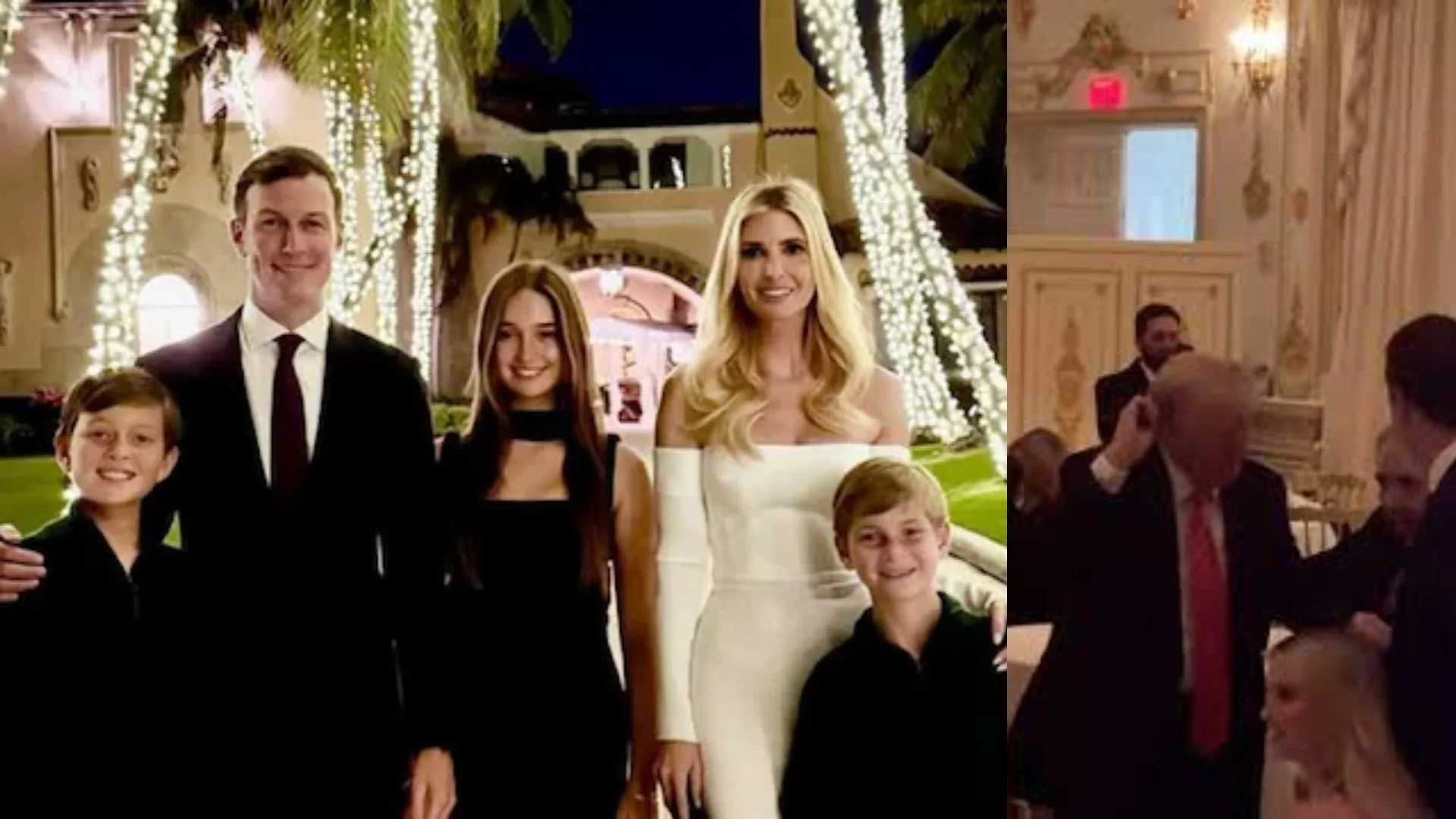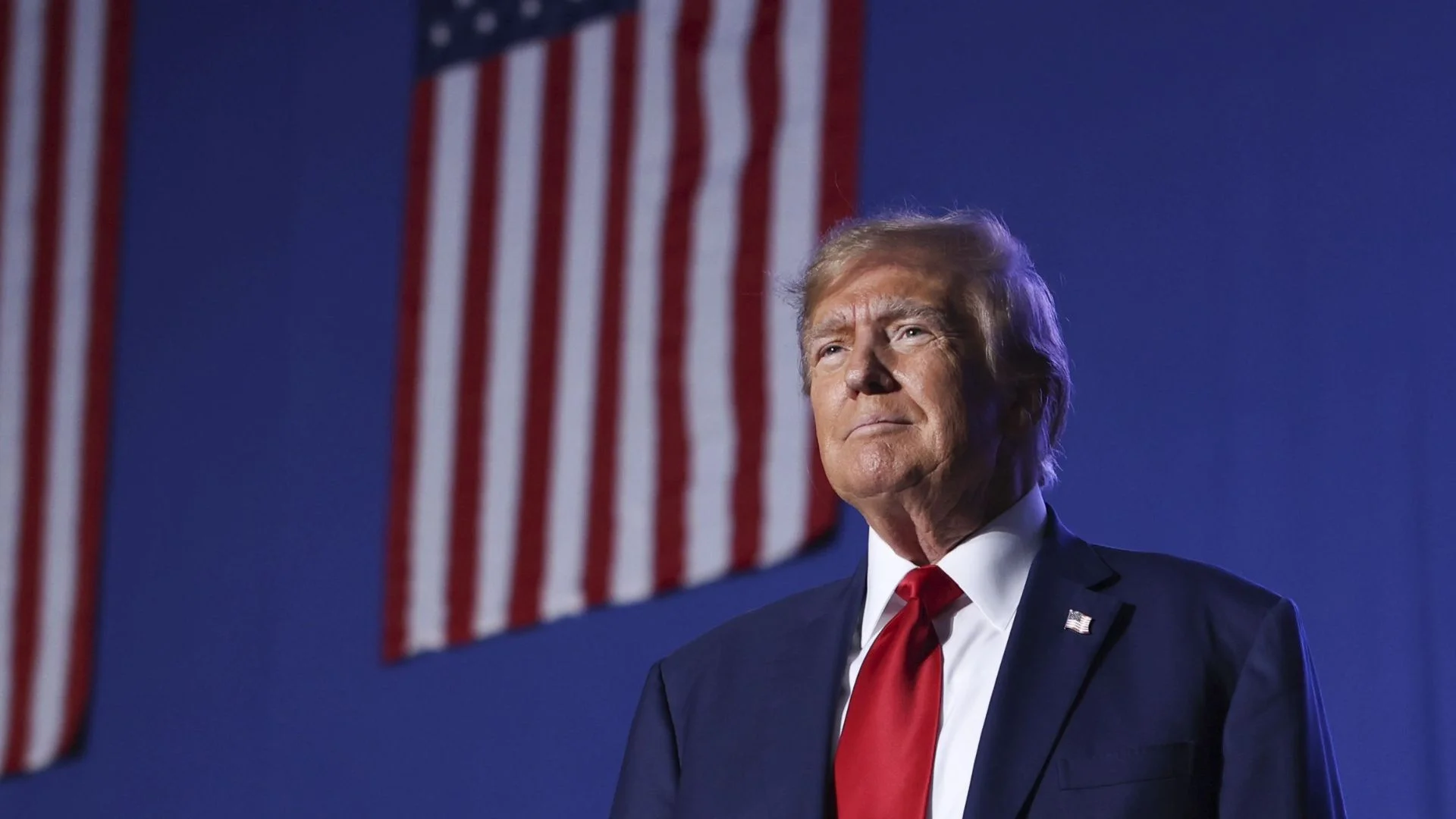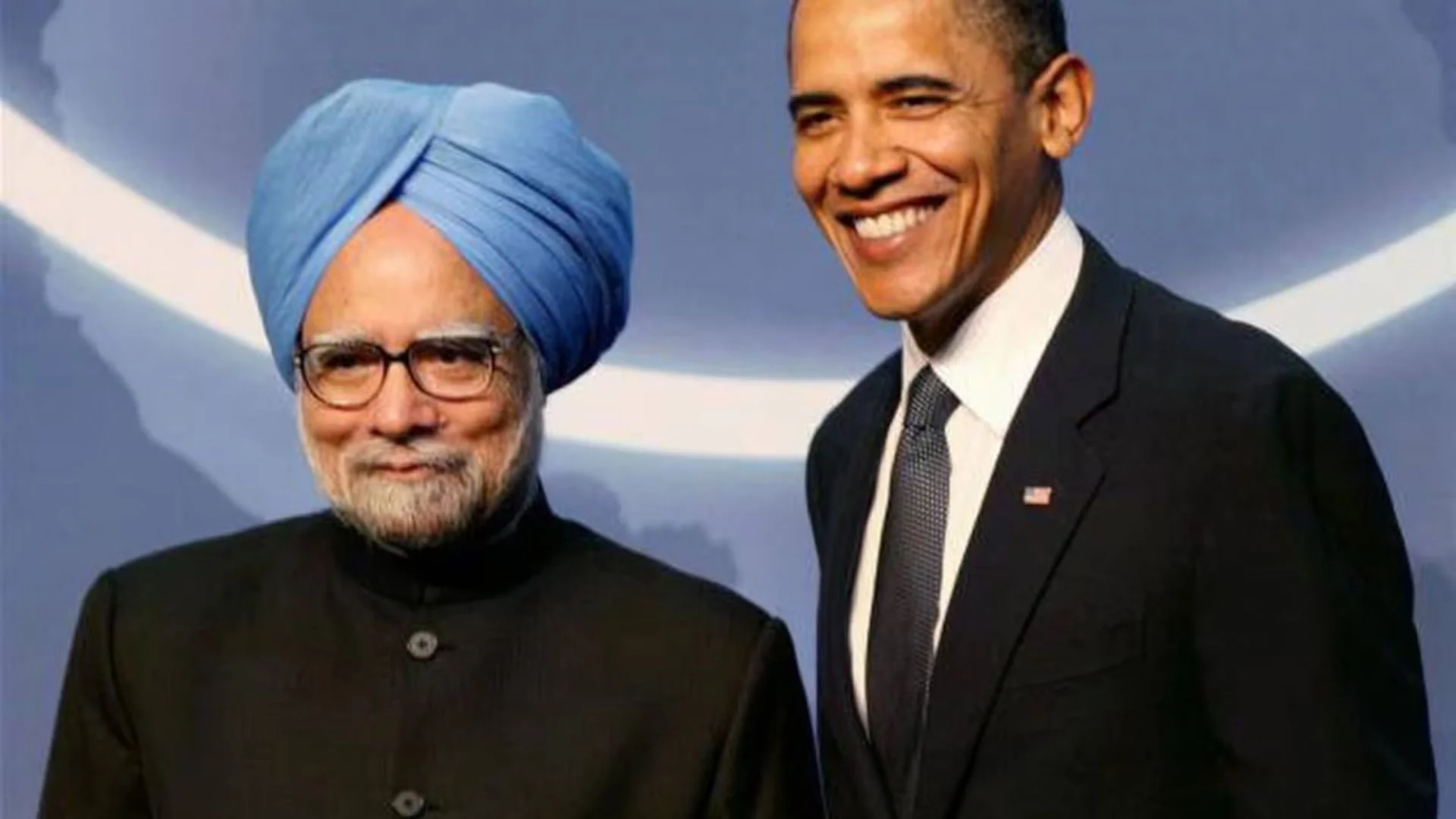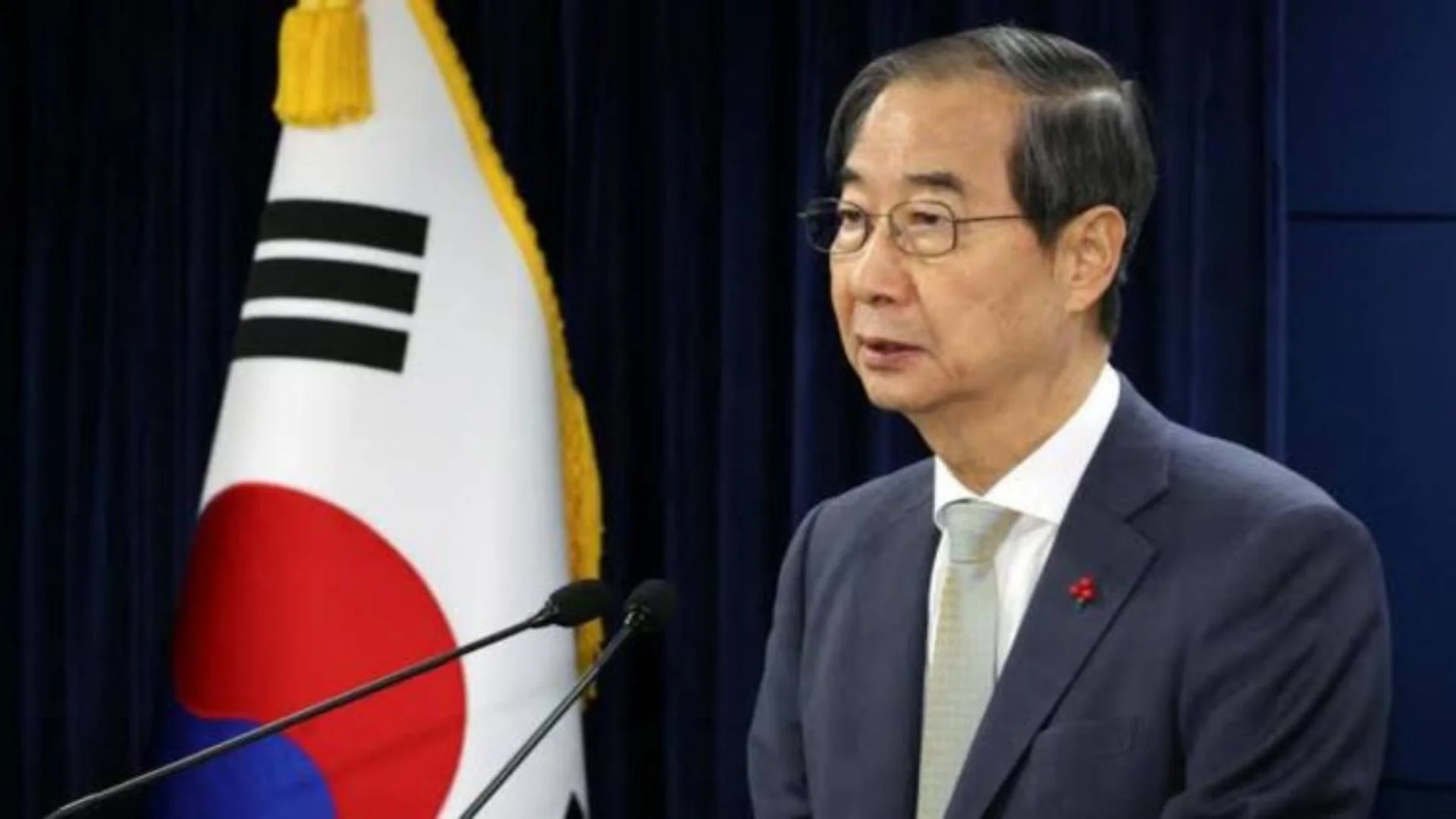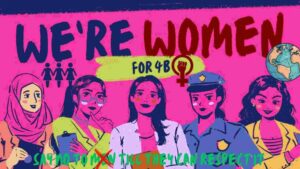The South Korean 4B movement, which advocates for rejecting patriarchal norms by boycotting men entirely, has gained increased attention in the United States following Donald Trump’s victory in the 2024 presidential election. The movement, which first emerged in 2019, urges women to avoid heterosexual marriage, childbirth, dating, and sexual relationships as a form of protest against gender inequality.
Following Trump’s win, particularly after his vocal opposition to reproductive rights, some American women on social media expressed their support for the 4B movement. “American women, looks like it’s time to get influenced by Korea’s 4B movement,” one user posted. Another urged, “It’s time we join them. Men will NOT be rewarded, nor have access to our bodies.”
WATCH THE VIRAL VIDEO:
The 4B movement’s four principles—*bihon* (no heterosexual marriage), *bichulsan* (no childbirth), *biyeonae* (no dating), and *bisekseu* (no heterosexual sexual relationships)—are designed to challenge a system many women view as perpetuating gender inequity. In South Korea, women face a significant gender pay gap, with women earning 31% less than men, the highest gap among democratic nations. The movement’s supporters argue that traditional relationships, such as marriage, expose women to greater risks, including intimate partner violence (IPV), with statistics showing one in three South Korean women has experienced domestic violence.
In response to these challenges, the 4B movement has gained momentum as a way for women to assert autonomy and resist societal pressures. Many in the movement, such as Yeowon from Busan, believe that rejecting heterosexual marriage and dating is essential to protecting their independence.
The rise of the 4B movement is partly attributed to the growing education gap between men and women in South Korea, where women now outnumber men in college enrollment. As more women pursue higher education, tensions between men and women have escalated, with some men feeling threatened by these shifts. This cultural divide mirrors a similar trend in the US, where men, particularly from working-class backgrounds, are turning to conservative candidates like Trump as a response to their perceived loss of traditional gender roles.
For South Korean women, the 4B movement is not just symbolic; it’s a concrete social stance aimed at reclaiming control over their lives and futures. With the increasing rollback of women’s rights in the US, particularly regarding reproductive autonomy, the 4B movement has garnered interest as a potential response. As the movement gains traction online, the question remains: will American women adopt the 4B model, or perhaps create a version of their own, as a form of protest against the challenges to women’s rights under Trump’s presidency?

